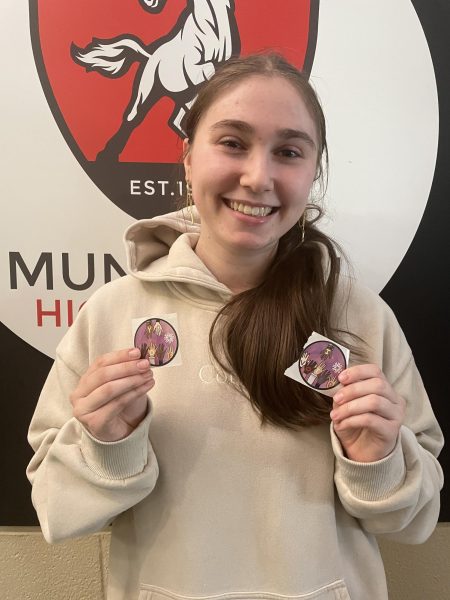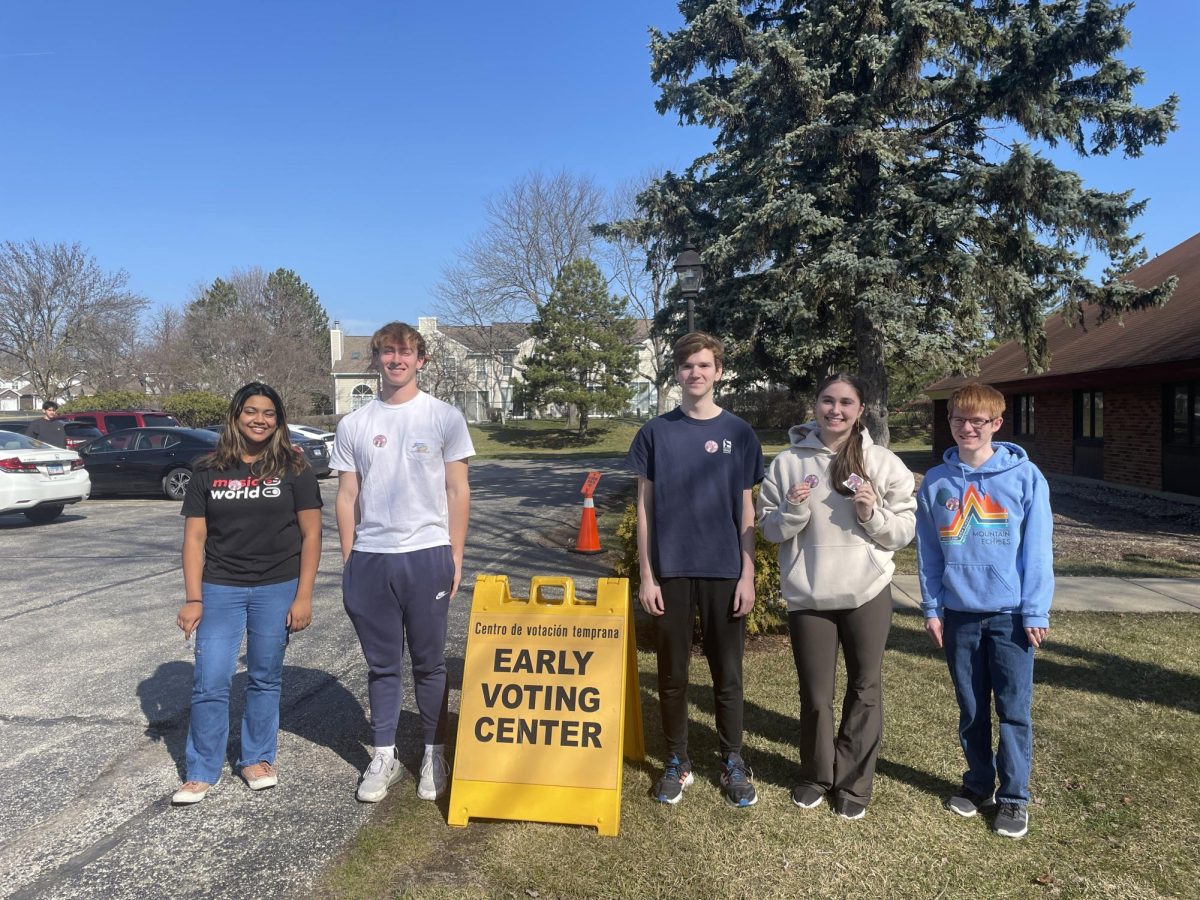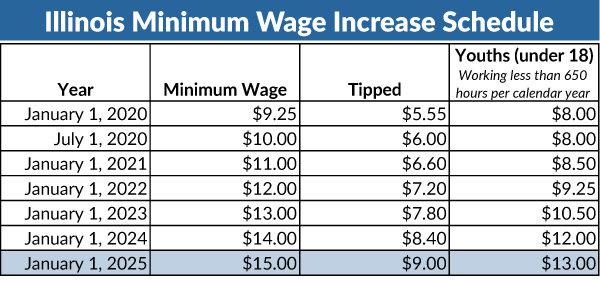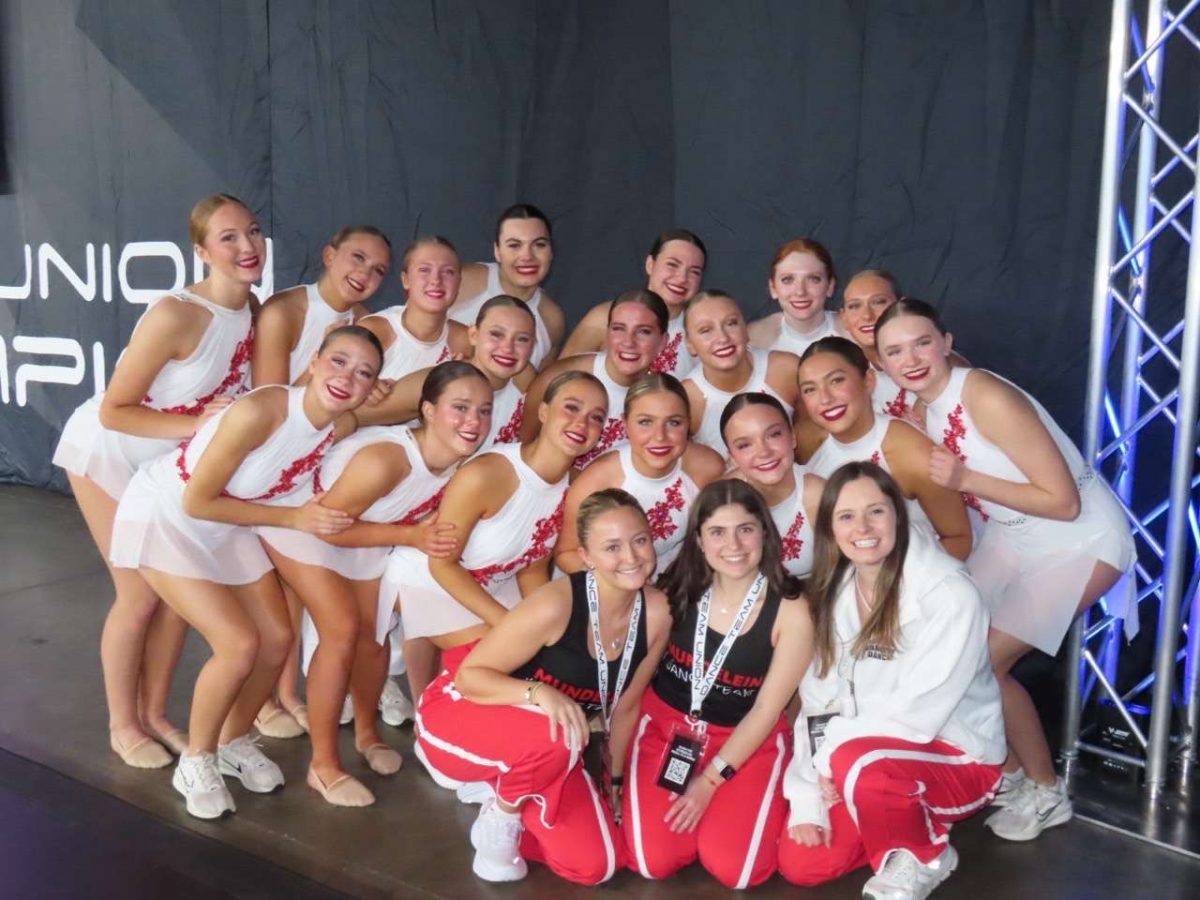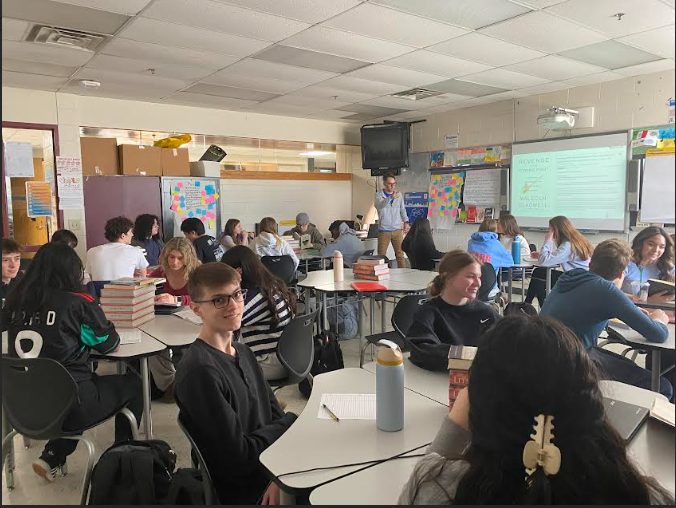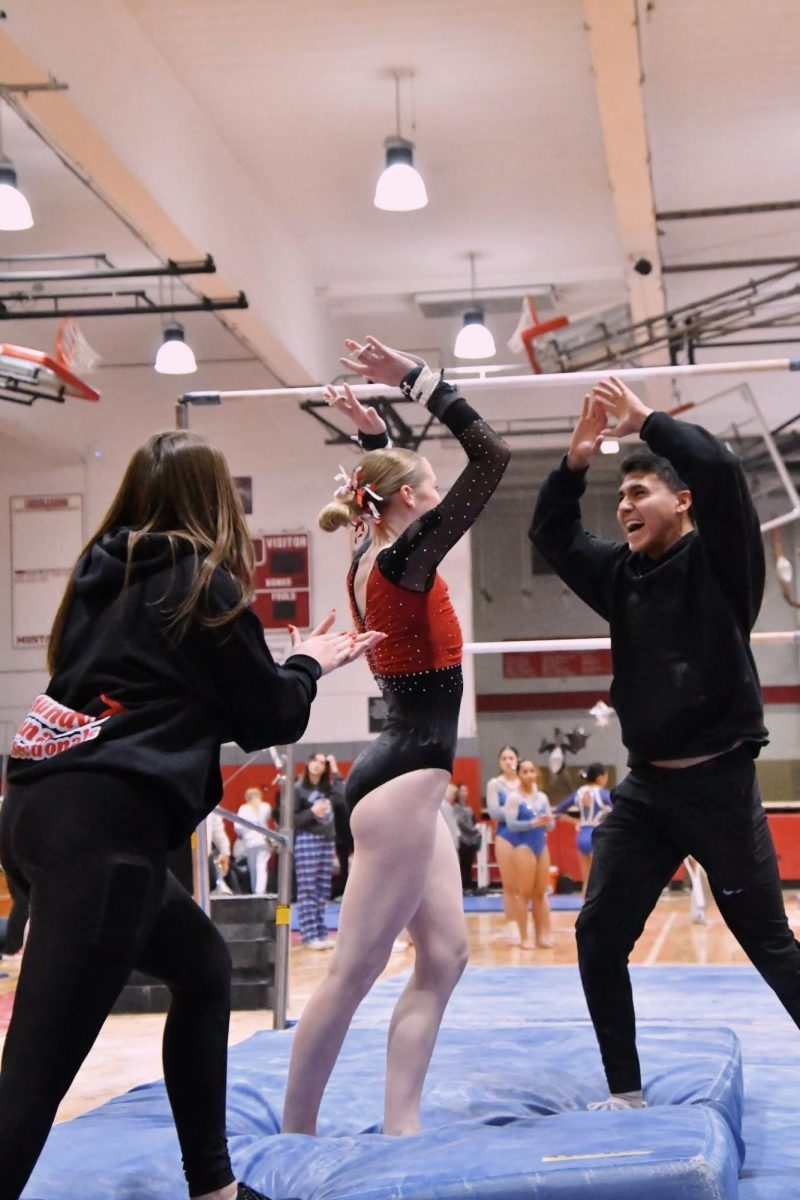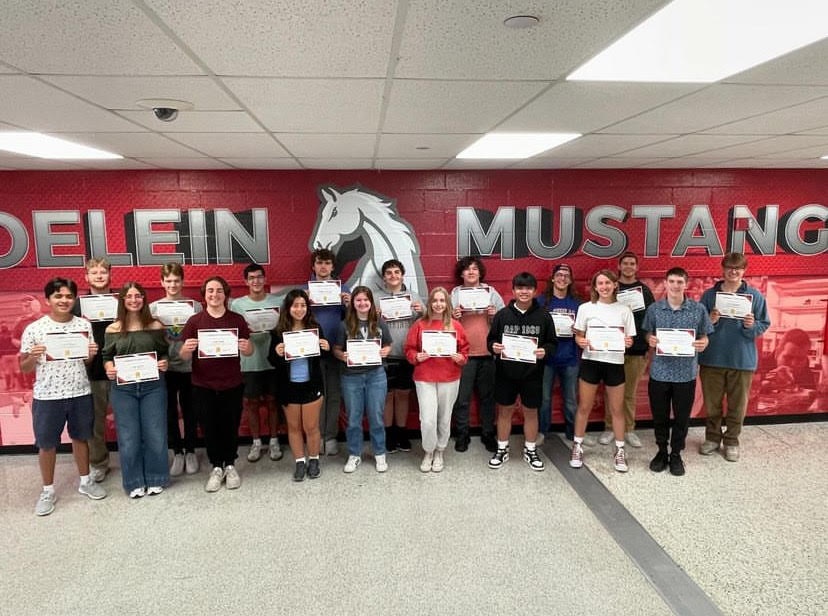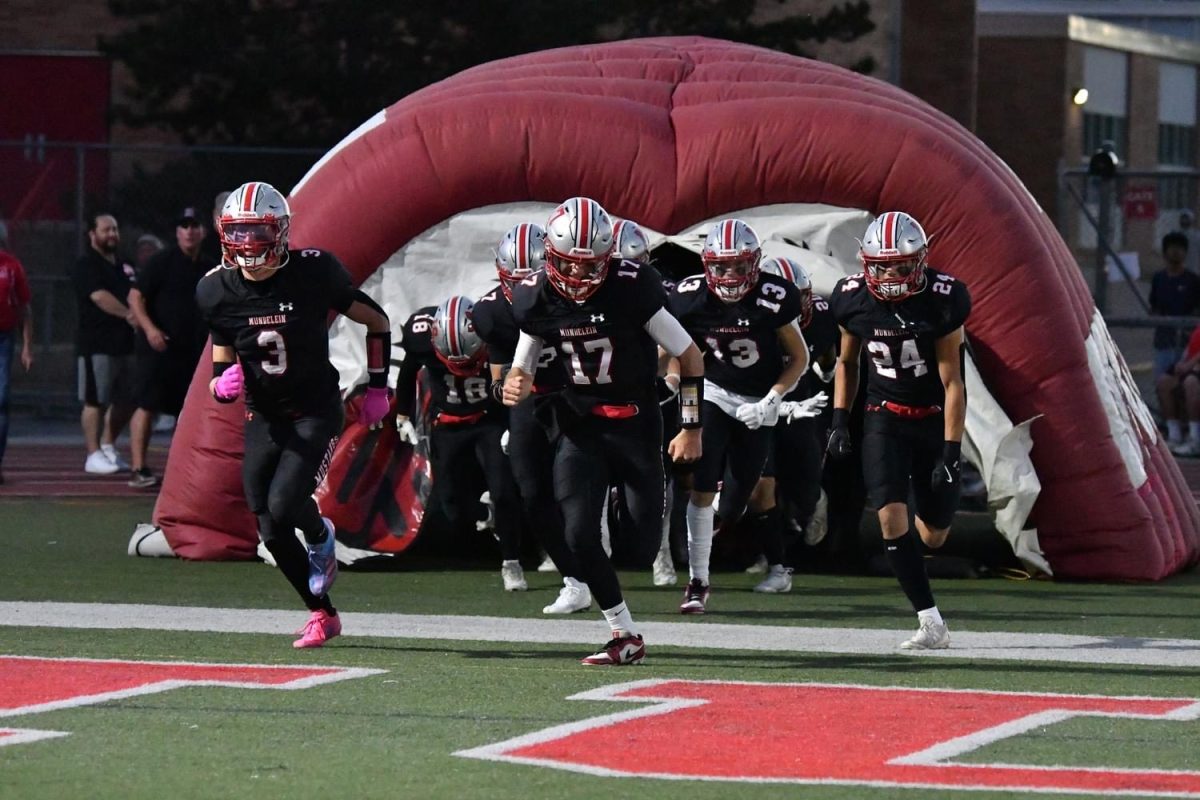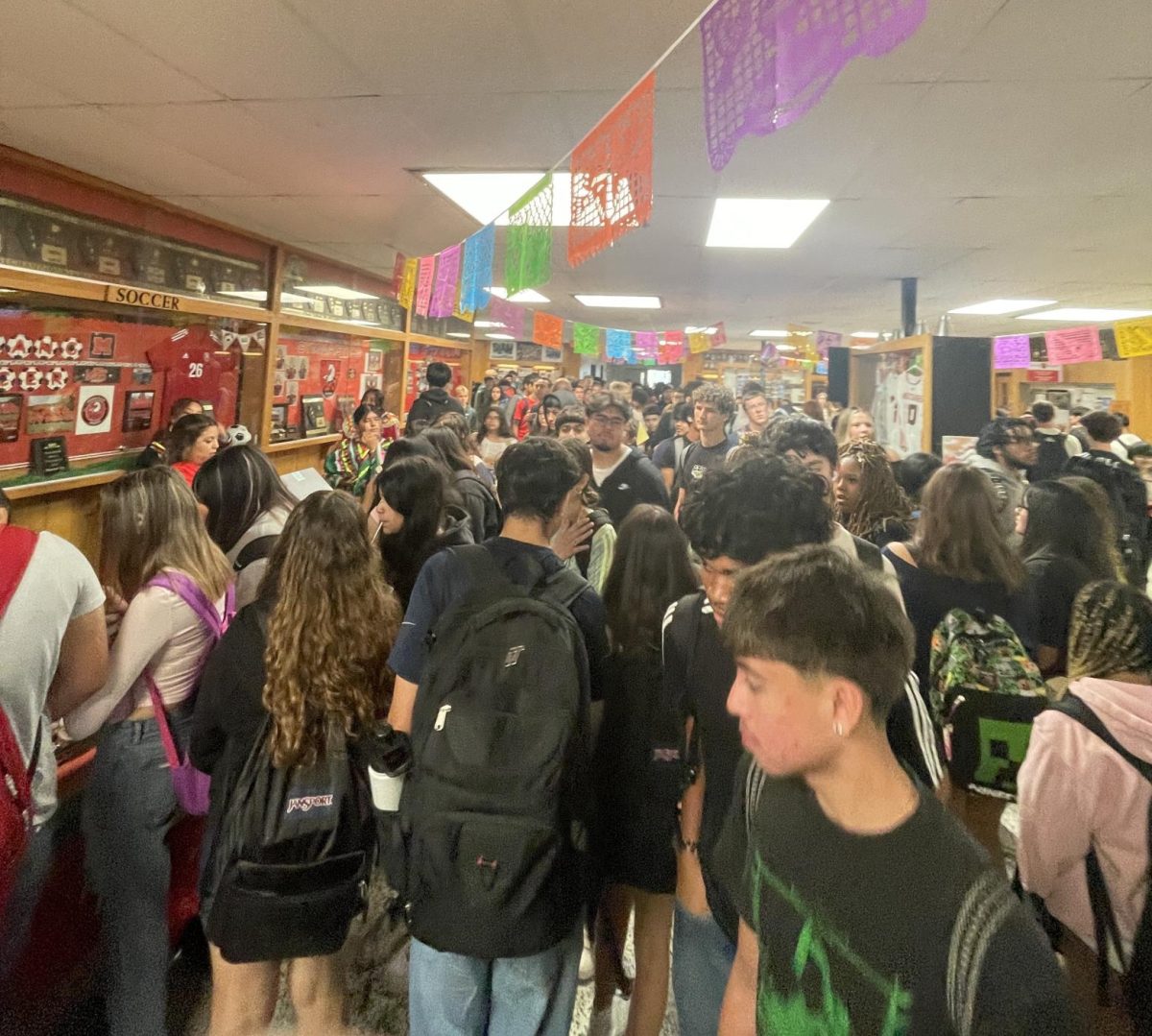The air is buzzing with the anticipation of the upcoming Presidential election. Our news sources are swamped with the candidates of the election and their agenda proposals. However, not many news sources cover why people should vote and how.
The youngest generations have the lowest voter turnout, including a lack of votes from high school students.
AP American Government and AP Comparative Government teacher, Thomas Kuhn, described the importance of voting because it sends a message to politics and the government itself.
“The standard line is: you can’t complain if you don’t vote. More importantly, voting sends a message to politicians that you have a position on issues and that [you need to be] calculated into the population [that candidates campaign for],” said Kuhn.
Kuhn said how he has voted in every election since he turned 18 years old. His enthusiasm for participating in government spread to his students. On March 13, Kuhn took his AP Comparative Government class to vote in the primaries at The Annex next door.
Junior Sammi Jaffe was one of the five students who voted that day.
“I felt very excited after voting since it was my first time. It was also really fun because I was with my entire government class and everyone was watching us vote for the first time,” Jaffe said.
However, students like Jaffe are the exception. According to Tufts Circle University Research, it was estimated that 50% of 18-19 year olds voted in the 2020 Presidential election. While 50% is higher than past statistics, it is still less than the amount of voters compared to older generations.
For this upcoming election, Kuhn understood why some teenagers may not feel compelled to vote. “I think it’s an example of the lack of leadership from a younger political generation to step up into public office. I can see why it’s hard for a student to vote when they’re really choosing between two people’s oldest grandparents,” he said.
Jaffe also acknowledged why some teenagers may not vote.
“I think definitely that the younger generation feels that their voice isn’t heard or that it doesn’t matter, especially with the large number of new voters coming in. However, it’s important that they use their voice to influence something as important as the President of the United States or people who create rules for the communities we live in,” said Jaffe.
AP Government teacher, Michele Bonadies, is also politically active and explained the necessity of voting.
“I vote in EVERY election at every level. In a republic, citizens do not govern directly but elect representatives to make decisions on their behalf. Voting is an opportunity to have a voice in who will represent me and the interests of the people in our government,” said Bonadies, “voting is an opportunity to hold our elected officials accountable. Representatives who are not responsive to the needs and desires of their constituents can be voted out of office. Voting incentivizes representatives to be accountable to the people they represent.”
A reason why students like Jaffe chose to vote is because they recognize how voting is a privilege.
Jaffe’s Mock Trial coach, Nicole Malham, explained how women and minority groups fought so hard to get the right to vote, so it is important that students use their voices that they fought so hard for in these elections to show what they care about.
Bonadies referenced the history behind suffrage as well when mentioning why students should vote. She said, “The 26th Amendment lowered the voting age in federal elections from 21 to 18. Although many 18 year olds do vote, this is still one of the most underrepresented voting demographics. When the U.S. Constitution was ratified and established our republic, less than 20% of the people in the U.S. were eligible to vote. The extension of suffrage has been a long and hard fought battle over the years. I believe everyone who is eligible to vote should exercise their voice.”
Illinois made an effort to attract young voters when they lowered their voting age. For instance, a citizen can be 17 and still vote in the Primary Election as long as they will be 18 by the fall.
Kuhn explained why this is significant, “Part of the reason Illinois lowered the voting age to 17 for the Primaries is that it almost ensures every kid will vote while they’re in high school,” he said.
Kuhn added that it is helpful for students to vote while learning about American history and government in school. Additionally, when people start voting young, it becomes part of their routine, making them more likely to vote later in their life as well.
Kuhn stressed the importance of voting in not just the Presidential election, but in local elections as well, for “there are so many local policies that have immediate effect on your life,” said Kuhn.
The lack of student votes in elections is partly due to a lack of information and education on how to vote.
The first step to voting is to register. Students can do this online or through going to Kuhn’s room in A15. Kuhn can register students to vote as long as they bring two sources of ID with them. Kuhn said that this whole process takes two minutes.
Another way to register is to register onsite before casting a vote. Jaffe took this approach and nonetheless described it as “a quick and easy process.”
In order for the younger generations to gain more political recognition as well as practice political participation, students need to vote.
Bonadies said, “There is strength in numbers. Young people are a significant voting bloc but they need to exercise their voices, through their vote, in order to be heard!”
The air is buzzing with the anticipation of the upcoming Presidential election. Our news sources are swamped with the candidates of the election and their agenda proposals. However, not many news sources cover why people should vote and how.
The youngest generations have the lowest voter turnout, including a lack of votes from high school students.
AP American Government and AP Comparative Government teacher, Thomas Kuhn, described the importance of voting because it sends a message to politics and the government itself.
“The standard line is: you can’t complain if you don’t vote. More importantly, voting sends a message to politicians that you have a position on issues and that [you need to be] calculated into the population [that candidates campaign for],” said Kuhn.
Kuhn said how he has voted in every election since he turned 18 years old. His enthusiasm for participating in government spread to his students. On March 13, Kuhn took his AP Comparative Government class to vote in the primaries at The Annex next door.
Junior Sammi Jaffe was one of the five students who voted that day.
“I felt very excited after voting since it was my first time. It was also really fun because I was with my entire government class and everyone was watching us vote for the first time,” Jaffe said.
However, students like Jaffe are the exception. According to Tufts Circle University Research, it was estimated that 50% of 18-19 year olds voted in the 2020 Presidential election. While 50% is higher than past statistics, it is still less than the amount of voters compared to older generations.
For this upcoming election, Kuhn understood why some teenagers may not feel compelled to vote. “I think it’s an example of the lack of leadership from a younger political generation to step up into public office. I can see why it’s hard for a student to vote when they’re really choosing between two people’s oldest grandparents,” he said.
Jaffe also acknowledged why some teenagers may not vote.
“I think definitely that the younger generation feels that their voice isn’t heard or that it doesn’t matter, especially with the large number of new voters coming in. However, it’s important that they use their voice to influence something as important as the President of the United States or people who create rules for the communities we live in,” said Jaffe.
AP Government teacher, Michele Bonadies, is also politically active and explained the necessity of voting.
“I vote in EVERY election at every level. In a republic, citizens do not govern directly but elect representatives to make decisions on their behalf. Voting is an opportunity to have a voice in who will represent me and the interests of the people in our government,” said Bonadies, “voting is an opportunity to hold our elected officials accountable. Representatives who are not responsive to the needs and desires of their constituents can be voted out of office. Voting incentivizes representatives to be accountable to the people they represent.”
A reason why students like Jaffe chose to vote is because they recognize how voting is a privilege.
Jaffe’s Mock Trial coach, Nicole Malham, explained how women and minority groups fought so hard to get the right to vote, so it is important that students use their voices that they fought so hard for in these elections to show what they care about.
Bonadies referenced the history behind suffrage as well when mentioning why students should vote. She said, “The 26th Amendment lowered the voting age in federal elections from 21 to 18. Although many 18 year olds do vote, this is still one of the most underrepresented voting demographics. When the U.S. Constitution was ratified and established our republic, less than 20% of the people in the U.S. were eligible to vote. The extension of suffrage has been a long and hard fought battle over the years. I believe everyone who is eligible to vote should exercise their voice.”
Illinois made an effort to attract young voters when they lowered their voting age. For instance, a citizen can be 17 and still vote in the Primary Election as long as they will be 18 by the fall.
Kuhn explained why this is significant, “Part of the reason Illinois lowered the voting age to 17 for the Primaries is that it almost ensures every kid will vote while they’re in high school,” he said.
Kuhn added that it is helpful for students to vote while learning about American history and government in school. Additionally, when people start voting young, it becomes part of their routine, making them more likely to vote later in their life as well.
Kuhn stressed the importance of voting in not just the Presidential election, but in local elections as well, for “there are so many local policies that have immediate effect on your life,” said Kuhn.
The lack of student votes in elections is partly due to a lack of information and education on how to vote.
The first step to voting is to register. Students can do this online or through going to Kuhn’s room in A15. Kuhn can register students to vote as long as they bring two sources of ID with them. Kuhn said that this whole process takes two minutes.
Another way to register is to register onsite before casting a vote. Jaffe took this approach and nonetheless described it as “a quick and easy process.”
In order for the younger generations to gain more political recognition as well as practice political participation, students need to vote.
Bonadies said, “There is strength in numbers. Young people are a significant voting bloc but they need to exercise their voices, through their vote, in order to be heard!”
